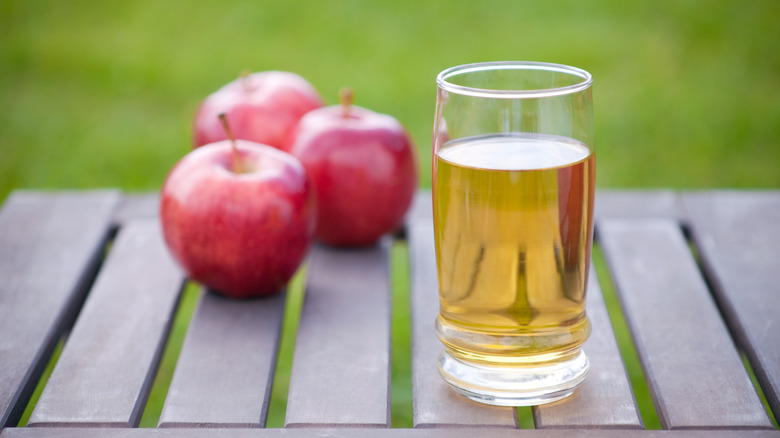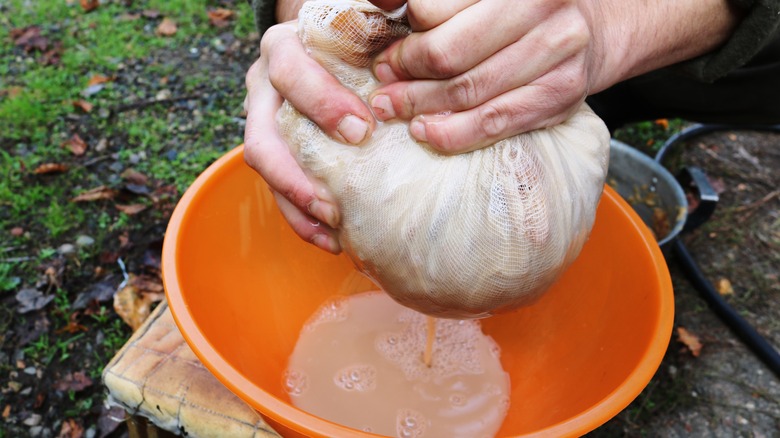The Mistake Everyone Makes Before Juicing Apples For Cider
Apple cider is the often overlooked cousin in the fall beverage family, occasionally taking a backseat as pumpkin spice takes center stage. But, not only is apple cider fun to make at home, it fills your kitchen with delicious autumn smells as the fresh juices cook. A basic recipe involves combining chopped fruit, spices, and water in a pot, then straining out the liquid. If you really want to squeeze the most juice out of your apples as possible, make sure to pulp them ahead of time.
Pulping these fruits is exactly what it sounds like — you'll pulverize them into a pulp before juicing them. If you do this before you begin heating your apples, you'll be able to reap more fresh liquid than if you plop them in your pot in chunks. It's important to crush whole apples in particular in a process known as scratting, because they're particularly good at fending off the pressure of juicing mechanisms. But, when you break them down first, you can allow their liquid to release much easier.
How to pulp apples at home
If you're ready to pulp away, here's what you'll need to do. This process is often conducted by cider companies using commercial kitchens and appliances, but you can replicate it in your home as well. A mortar and pestle will do the job, but if you don't own these tools, you can also try a muddler in a large mixing bowl. Or, try pulverizing the fruits in a food processor — although it's important to make sure you don't turn them into a puree, which can happen quicker than you may think. You want the end result to have more of a ground consistency, where you can still hold the bits with your fingers.
If you do have access to larger-scale tools, however, you may be able to get away with making larger quantities of cider. A big bucket and a wooden post will do the trick, although this method will require some muscle work. It's even possible to use a rotating blade at the end of an electric drill, but make sure to do your research before attempting this option. If you do own a home apple mill or a fruit crusher, then you already have all you need. Whichever method you choose, you'll have an easier time pulverizing these fruits if you freeze and then thaw them ahead of time. In the end, your extra effort will be rewarded with juicier, more potent cider.

